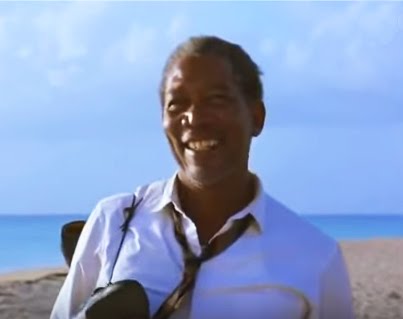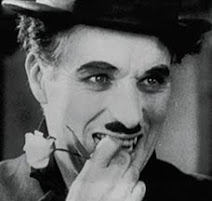(Because the comments section at
BLCKDGRD is closed, and I can't get my suggestion in. And, it seems fitting -- the season, and bloody obscene tragedies, and politicians, and Oval Office speechifying, and everything. That the world as we see it now must seem full of opportunities, to a certain type of individual.)
Behind The Green Door
Thaddeus had said he wanted to get together, but,
then, when we met in town, he didn’t seem to have anything
on his mind. “I’d like to get myself one of those remote-
controlled airplanes, and chase pigeons in the park,” he
said. “That will show them who’s boss,” I said. “Of course,
some people might think I’m a little old for that,” he said.
“For terrorizing innocent birds? You’re never too old for
that, Thad,” I said. We sipped at our beers. It was still
before noon, and Mary’s was almost empty, except for an elderly
couple at the bar drinking martinis. “They’re pretty expensive,”
Thad said. “Martinis?” I said. “No, stupid, remote-controlled
airplanes,” he said. “Think of it as an investment in your
lost childhood,” I said. He thought that over for a while.
The couple at the bar toasted one another, and laughed. The
bartender brought us another round. It was a Saturday, and
I had many errands and chores on my list. “You know all about
my ‘lost childhood,’ so I don’t need to remind you,” he said.
“I can recite what you got and what you didn’t get for all
your birthdays,” I said. “Then, why do you put up with me?”
he said. “I need to suffer, Thaddeus. It makes me a better
person. So, you see, indulging you is completely selfish
on my part. It doesn’t make any sense, but that’s how the
world is, and that’s why some great good may come out of
making those birds suffer. I don’t know what it is, but something
tells me it’s so,” I said. The woman at the bar was tickling
the man’s ribs, and he was about to fall off his stool. “Then,
you think there really is a plan?” Thad said. “Absolutely,
right down to the last drop of beer spilled on this floor
every night, to the ant you killed walking out your door,
and the plane crash in the Andes,” I said. Thaddeus seemed
stunned, while I was just saying anything that came into my
head. I took it as my job to give him something to think
about. The couple at the bar ordered another round. Then,
Thaddeus said, “If that’s true, then I’ve never really done
anything wrong. I had no choice, I’m off the hook.” I looked
at my watch. We were right on schedule for that conclusion.
“And soon the earth will open up, and a ten-thousand-year-old
giant squid will strangle us all,” I said. “I’m hungry,” Thaddeus
said, “do you want to get some lunch? There’s a new place
across the street.” “That’s not new. They just painted the
door a different color. The owner, Herb, had a midlife crisis
or something,” I said. “Well, then, it’s sort of new, I mean,
you don’t know what you’re going to get after something like
that,” he said. “I see your point. I suppose it could get
kind of ugly. Or maybe not. It could be better than ever.
Still, I have these errands,” I said. “You’re afraid to lose
even an hour, George, afraid what you might find in its place,
something truly unknown, without a name, no visible shape.
There’s nothing wrong with that, George. You know I’ve always
admired you, so go on your way, get your dishwashing detergent
or whatever it is. I’m going to find out what’s behind that green
door,” Thaddeus said. “No doubt there will be an ambrosia burger,”
I said, “and you’ll order one.” “I will have no choice,” he
said. When we stepped outside, the sunlight blinded me. “Good-bye,
Thaddeus,” I said, “wherever you are.” A dog barked, and, then,
a siren sped by. I couldn’t see my own hand in front of my
face.
-- From "Ghost Soldiers" (2008)
_______________________________











































